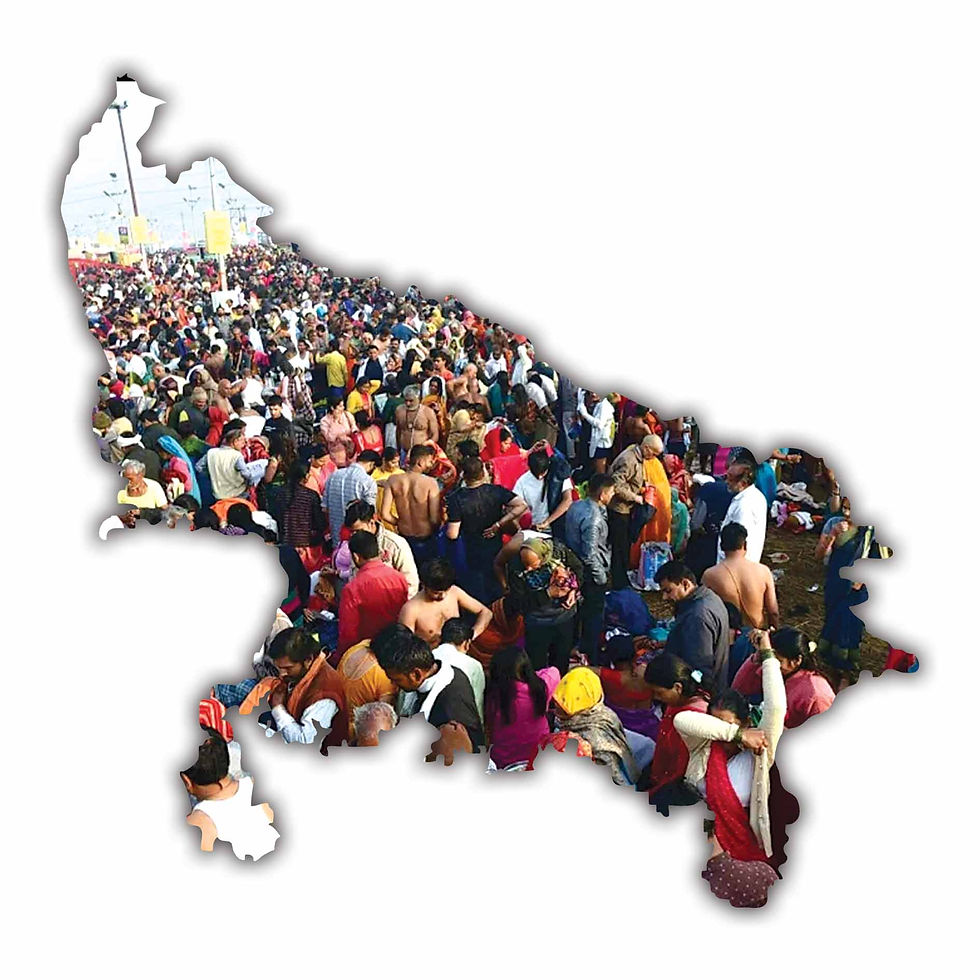Bodoland’s Burden
- Correspondent
- Sep 22, 2025
- 3 min read
In Assam’s hills, ethnic identity and political ambition collide as voters decide who will control Bodoland’s fragile autonomy.

The Bodoland Territorial Council (BTC) elections, which were held under tight security in western Assam, seem ostensibly a routine democratic exercise. Yet, in a region where identity, insurgency, and politics have long been intertwined, every vote carries a weight far beyond the ballot box.
The BTC, created in 2003 after decades of armed struggle and negotiation, was meant to provide a measure of autonomy to the Bodo people, Assam’s largest indigenous tribe. The Bodos’ grievances are rooted deep in colonial-era policies and post-independence Assam’s ethno-linguistic ferment. In the late 19th century, the British had encouraged migration of non-Bodo communities into the Brahmaputra valley for administrative and agrarian purposes. Land pressures and cultural marginalization followed, sowing the seeds of discontent. By the 1980s, frustrations over perceived neglect and encroachment erupted into insurgency, spearheaded by the Bodo Liberation Tigers (BLT).
After years of violence, the 2003 Bodoland Territorial Council accord marked a truce, granting the Bodos limited self-rule over a contiguous area in western Assam. Yet autonomy has always been fragile, contested by other ethnic groups within the council area, and complicated by political rivalries that often mirror the larger state-level tussles in Assam. The council has oscillated between factions, with the Bodoland Peoples’ Front (BPF) dominating for three terms before the rise of the United Peoples’ Party Liberal (UPPL), now the incumbent authority. Alliances with the Bharatiya Janata Party (BJP) have added another layer of complexity, as national parties increasingly assert influence in what was once an exclusively tribal political domain.
This year’s elections are particularly telling. The BJP, contesting for the first time in the BTC without an alliance, seeks to consolidate its foothold, reflecting the party’s broader strategy of penetrating Assam’s ethno-regional politics. Chief Minister HimantaBiswaSarma, a former Congress heavyweight turned BJP strategist, has cultivated a blend of developmental promises and political patronage aimed at winning over key Bodo constituencies. His approach is calculated: by supporting UPPL incumbents while weakening the BPF’s traditional base, he hopes to ensure that Bodoland’s governance aligns with the BJP’s broader ambitions in Assam without provoking outright ethnic backlash. It is a delicate balancing act, reminiscent of the party’s manoeuvres in the northeast more generally, where local alliances and identity politics can override conventional electoral calculus.
Meanwhile, the BPF hopes to reclaim lost ground after its recent decline, and the UPPL faces the challenge of defending its incumbency amid rising local expectations. Smaller parties, such as the Congress and the Gana Suraksha Party, add to the cacophony, though the real contest remains among the three principal players. The UPPL currently governs in coalition with the BJP and GSP, a tenuous arrangement reflecting the fragility of alliances in Bodoland politics.
Despite these machinations, the vote itself is a measure of civic engagement. More than 2.65 million voters, half of them women, are eligible this time, a figure that speaks to both demographic growth and expanding political awareness. Sarma’s exhortation to vote underscores the centrality of these elections not just for local governance but for the stability of Assam’s broader political ecosystem. Early reports suggest healthy turnout, an encouraging sign in a region where past elections have sometimes been marred by intimidation and violence.
Yet the history of Bodoland reminds observers that political arithmetic alone cannot resolve the region’s deeper tensions. Ethnic fault lines persist, often exacerbated by migration, land disputes, and competition for resources. Previous accords have brought temporary calm, but durable peace depends on more than autonomous councils or power-sharing deals: it requires a genuine sense of inclusion for all communities within the Bodoland Territorial Region (BTR), alongside sustained economic development. Infrastructure, education, and employment are as crucial to stability as political arrangements.
The outcome of the September 26 vote will determine which coalition shapes the next chapter of Bodoland governance. Whatever the result, the elections are less a conclusion than a continuation of a centuries-long story of the Bodos’ search for identity and agency.





Comments